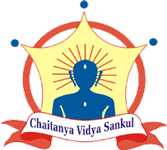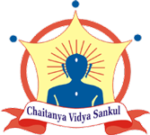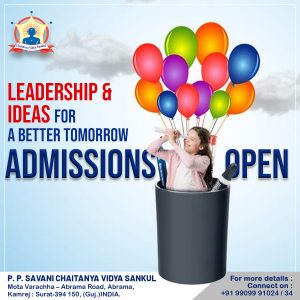Educational Guidance and Counselling for Students
Children require guidance and counselling, and schools play a vital part in bringing out the best in them. While good behavior is admired, young minds often require coaching to polish their personalities. Children are provided information on how to handle and deal with emotional conflict and personal problems through counseling. Students and professionals can use online career counselling and coaching to find their genuine potential, which is perfectly aligned with their career interests. They can get competent career counseling at free or low cost from the comfort of their own homes.
Counselling will assist them in incorporating important lessons into their daily lives. Some sessions should include career counselling, in which students are advised on various career routes and which courses will be suitable for them. It’s critical to prepare children for life after school, and what they might expect in the many careers they may choose.
Benefits :
- Students are provided sufficient information on how to deal with psychological issues that may harm their academic performance. Students will be able to build certain problem-solving abilities as a result of these sessions, which will help them deal with specific challenges in their lives to some extent.
- Students are advised on how to deal with various problems that arise in their school lives. For example, how should they communicate politely or interact with their peers? This advice will provide them with insight into how they should act in specific situations.
- It aids in the shaping of a student’s behavior as well as the installation of sufficient discipline. Students who are adequately guided and counselled know what to do and how to do things in the best possible way, which helps them reach their goals.
- Students learn how to live in peace and harmony with their classmates and teachers. They also learn to appreciate the other students in their class as a result of this.
- It helps bridge the gap between students and school administration by allowing them to channel their difficulties through an appropriate counselling channel in the office.
- Students receive thorough career, course, and job counselling, allowing them to make an informed decision and understand what they can do after they finish school.
- It permits children to talk to teachers about a variety of difficult events. They can openly discuss issues that they are unable to discuss with their parents.
- Students become better human beings as a result of guidance and counselling, as they are advised on how to act and behave in specific situations.
- It allows kids who are having problems in their life to ask questions and get answers through guidance and counselling. As a result, counselling allows kids to inquire without fear because the person in charge is willing to assist.
Tools for assessment :
Standardized and non-standardized exams, questionnaires, inventories, checklists, observations, portfolios, performance assessments, rating scales, surveys, interviews, and other measurements are among the formal and informal tools and procedures used in the assessment.
How to overcome problems faced by students
- Assist students with career counselling.
- Young brains require suitable supervision to become capable of standing in society and making a name for themselves. Educational guidance and counselling not only assist students in making job decisions but also boosts their confidence and mentally prepares them for societal challenges.
- Teachers assist students in identifying their strengths, honing their interests, and providing them with career options to pursue their ambitions.
Counseling for both personal and professional decisions :
- Parents and children still assume that getting good marks will help them get into the best engineering or dental schools and lead to a great career. However, it is also critical to understand the interests of youngsters, and here is where the instructor comes in handy. The choice of the appropriate stream or field for the youngsters is entirely dependent on self-evaluation.
- Self-assessment entails looking at the child’s abilities, interests, analytical skills, work style, and personality. Teachers must provide the child with all contemporary trends, current advancements in many fields, needs, and financial prospects while prioritizing the child’s interests.
- Counselling sessions begin at a young age, opening doors of communication and instilling children the necessity of choosing the appropriate career path. A typical counselling session entails listening to the youngster and making appropriate recommendations.
Guidance and Counseling aims to :
- Provide a focus on a child’s requirements : Teachers can provide the desired emphasis to each student by holding regular advice and counselling sessions. Interaction with students regularly can help to create trust and fine-tune the teacher-student connection. Counselling sessions are a gradual process that molds and redirects youngsters toward a more promising future.
- Receiving the proper understanding: Productive counselling can assist the teacher in determining how much attention a child requires.
- Maintaining self-contr: Counselling aids in improving the teacher-student connection, which can be good in the development of child control. Every educational institution has its own set of objectives that can be met if the youngsters are under your authority. This aids in the maintenance of discipline and the control of your children.
Enabling overall progress: Students must develop the knowledge, attitudes, and interpersonal skills necessary to set their own goals, make their own decisions, and take the actions necessary to achieve those goals. Children must also learn how to be decent citizens.
A guidance counselor’s role :
- To give wings to children’s dreams by providing vocational and career-oriented guidance.
- Gives individual problems, both academic and personal, a chance to be heard.
- Personal development is aided.
- Provides information on employment, interviews, career opportunities, the benefits of choosing a specific sector, and the steps to achieving it.
- Guides research methods.
- Mentally prepares the youngster for future events.
- Encourages the child to pursue a path by focusing on their strengths.
- Work on honing skills to achieve a specific objective.
- Introduces you to outside agencies.
Final Verdict
Life, as they say, is a voyage of uncertainty; despite our best efforts, we are confronted with events we had not anticipated, and the current COVID-19 pandemic is one of them. The investment made by the school, instructors, and parents in developing an individual and establishing character strength, confidence, and reassurance are what comes to a student’s rescue in such situations. As a result, in addition to being a subject matter specialist, a teacher must form a lifelong bond with their students and become their confidante, guiding them through thick and thin while imparting important life lessons.
FAQ
1.What are the three main areas of counseling and guidance?
- Guidance and counselling for students.
- Guidance and counselling in the field of work.
- Guidance and counselling in the areas of personal and social well-being.
2. What is the purpose of records and inventories in guidance and counseling?
Interest testing is used to achieve a specific goal, such as providing instructors and counsellors with information about a student’s preferences and aversions, which would aid them in gaining a better knowledge of the student and their difficulties.
3. What is the relationship between counseling and guidance?
Guidance is a term used to describe counsel or pertinent information given by a superior to help a person handle a problem or conquer a challenge. Counselling is a term used to describe professional guidance given by a counsellor to an individual to assist him in overcoming personal or psychological issues.
4. What is the role of observation in guidance and counseling?
Teachers can acquire qualitative data about a student’s progress and development through informal observation rather than depending on grades from their academic work or reports from other teachers. They will be seen in an undisclosed state, giving the teacher or watching adult a more objective perspective.
5. What is the use of the Interview technique in guidance and counseling?
An interview is just an organized dialogue in which one person asks questions and the other responds. Interview tactics are used by therapists to acquire relevant data as well as to aid in the development and maintenance of good rapport.



